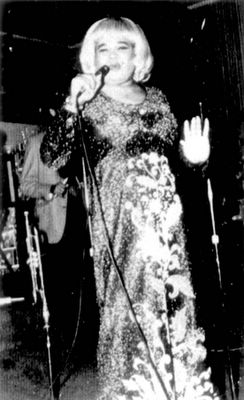A Side Man Steps Up Front Again

"Mudd" (R. Montrell)
Roy Montrell, Minit 619, 1960
I’ve had this instrumental on a CD compilation (Charly’s The Minit/Instant Story) for years, and never really connected with it. Then I came across the 45 recently, gave it a spin, and got a whole new feeling about it. Despite the rather beat up condition of the vinyl, the groove on this tune pulled me in – something that had never happened on the digital version. It’s not the first time something like this has happened, listening to records. They can just have more of a mojo than CDs. Of course, I regularly reduce ‘em to 1’s and 0’s for the sake of our discussions; but I still think some of that essence comes through.
As discussed in my earlier post on Roy Montrell, this go-to guitarist on the New Orleans recording scene in the later 1950’s and early 1960’s had only one other single in his name, Specialty 583, “(Every Time I Hear) That Mellow Saxophone” b/w “Ooh-Wow”. But both of those 1956 scorchers feature him as vocalist, showing little to none of his instrumental abilities.
Recorded four years later and released as Minit 619, “Mudd” b/w “The Montrell” made up for that, featuring Montrell’s guitar, sans vocals, on two of his own compositions. The B-side is a more straightforward, and less interesting, tune and performance; but “Mudd” is a different pressed wad of wax, as it brings out various aspects of his playing style: bluesy, string-bending lead work, rock ‘n roll double string riffs, and rhythmic chord comping. To me, the guitar figure that starts out the song and later repeats sounds like part of the main riff on the 1957 Bill Justis song, “Raunchy”. But he doesn’t stick with it long enough to matter.
“Mudd” was made at a time when Allen Toussaint was running the sessions for Joe Banashak’s Minit label, so I assume he oversaw and possibly arranged this one for his house guitarist. I love the way the horns come in a various points and lazily insinuate themselves into the song. I am equally knocked out by the drumming, probably by session regular John Boudreaux, that just didn’t hit me before. His groove is so laid back and unassuming that you, too, might not notice at first how he is messing with the beat. You’ve got to give Boudreaux props for playing with that proto-funk feel. It’s like something you’d find Smokey Johnson doing later in the decade. I’d like to know if Toussaint gave Boudreaux instructions for this (as he often did), or if the drummer came up with it on his own.
The other regular session men probably on this track are Chuck Badie on bass, Nat Perrilliat and/or David Lastie on tenor sax, Red Tyler or Clarence Ford on baritone sax, and Toussaint on piano. Together they worked on records for Chris Kenner, Ernie K-Doe, and Irma Thomas, to name but a few. Then a number of the players (Montell, Boudreaux, Tyler, Badie, and Lastie) helped Harold Battiste found AFO Records and contributed to those sessions during the label’s brief run. From there, Montrell became a regular in Fats Dominos road band, serving for well over a decade before dying of a drug overdose.












